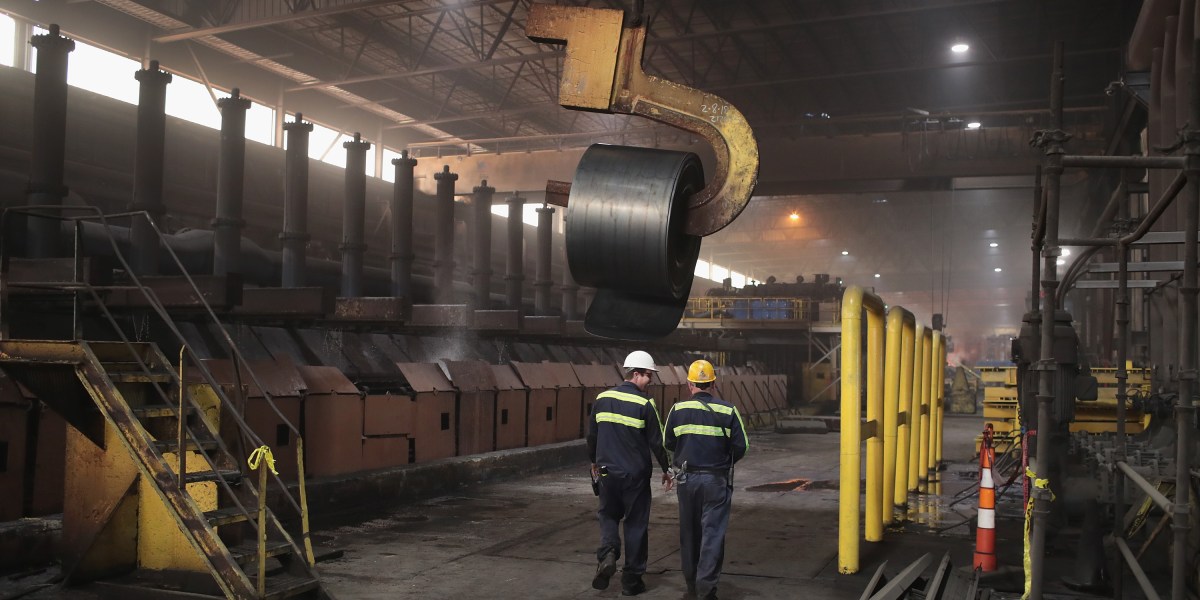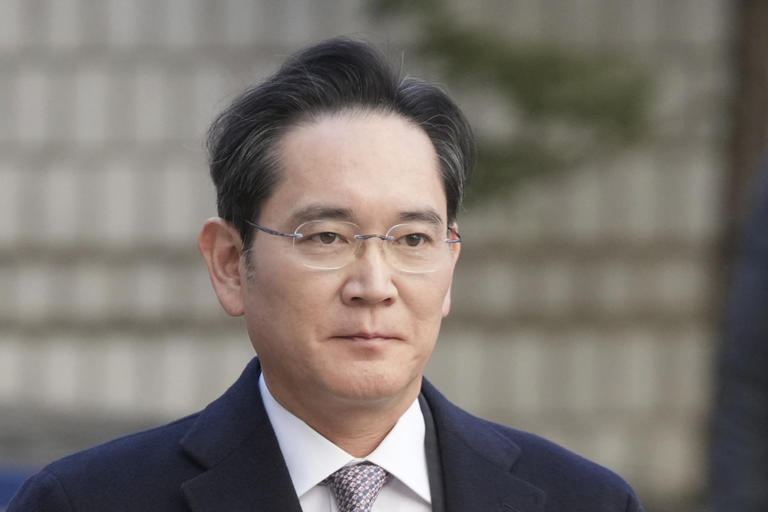Impact Of US Tariffs On Brookfield's Manufacturing Investment Strategy

Table of Contents
The imposition of US tariffs has significantly altered the global landscape for manufacturing investment. This article examines the impact of these tariffs on Brookfield's manufacturing investment strategy, analyzing how the company adapts to this complex and ever-changing environment. We explore how tariffs affect risk assessment, due diligence processes, and the overall decision-making within Brookfield's investment portfolio, considering the implications for global manufacturing and supply chain resilience.
Increased Costs and Price Volatility
US tariffs directly impact the profitability of manufacturing investments. Brookfield, like other investors, must navigate these increased costs and price volatility to maintain a competitive edge.
Raw Material Costs
Tariffs on imported raw materials directly increase input costs. This forces manufacturers to either absorb these increased expenses, impacting profit margins, raise prices, potentially losing market share, or seek alternative suppliers, introducing logistical complexities.
- Increased input costs reduce profit margins: Higher raw material prices directly translate to lower profitability unless offset by price increases or efficiency gains.
- Brookfield's response may involve diversifying sourcing: To mitigate risk, Brookfield likely explores sourcing raw materials from multiple countries to avoid over-reliance on single sources affected by tariffs. This involves negotiating favorable terms with suppliers and managing a more geographically diverse supply chain.
- Potential for supply chain disruptions: Reliance on specific suppliers impacted by tariffs can lead to delays and shortages, disrupting production and negatively impacting investment returns.
Finished Goods Pricing
Tariffs on imported finished goods lead to higher consumer prices, impacting demand and potentially slowing investment growth in affected sectors. This necessitates a careful analysis of market dynamics and consumer behavior.
- Reduced market competitiveness for US-based manufacturers: Higher prices due to tariffs can make US-manufactured goods less competitive against imports from countries not subject to tariffs.
- Brookfield may prioritize investments in sectors less affected by tariff-induced price sensitivity: Investments may shift towards sectors producing goods with lower price elasticity of demand, meaning consumers are less sensitive to price changes.
- Analysis of price elasticity of demand is crucial for investment decisions: Understanding how price changes affect consumer demand is critical for assessing the long-term viability of manufacturing investments in a tariff-affected market.
Restructuring of Supply Chains
Brookfield's response to US tariffs involves a strategic restructuring of its invested companies' supply chains, prioritizing resilience and cost efficiency.
Nearshoring and Reshoring Initiatives
To mitigate tariff risks, Brookfield might increasingly favor investments in companies that are actively reshoring (returning manufacturing to the US) or nearshoring (moving manufacturing to nearby countries).
- Potential for increased investment in automation and domestic manufacturing: Reshoring often involves investments in automation to offset higher labor costs in developed countries.
- Evaluation of logistical costs and infrastructure requirements: Reshoring necessitates careful evaluation of transportation costs, infrastructure availability, and the overall logistical efficiency of domestic manufacturing.
- Brookfield's assessment of the long-term viability of near/reshoring strategies: The long-term success of near/reshoring depends on various factors, including labor costs, energy costs, and government incentives. Brookfield's investment decisions will reflect a careful assessment of these factors.
Diversification of Supply Sources
Diversifying sourcing beyond countries subject to high tariffs is crucial for reducing vulnerability to trade policy changes. This requires a broader global perspective and thorough risk assessment.
- Exploring new markets with lower tariff barriers: Brookfield’s strategy will likely involve identifying and establishing relationships with suppliers in countries with more favorable trade agreements.
- Thorough due diligence to assess political and economic risks in alternative locations: Moving supply chains requires careful consideration of political stability, economic conditions, and regulatory environments in potential alternative sourcing countries.
- Increased complexity in managing a more dispersed supply chain: Managing a geographically diverse supply chain introduces complexities related to logistics, communication, and regulatory compliance.
Changes in Investment Criteria & Due Diligence
The impact of US tariffs necessitates significant adjustments to Brookfield’s investment criteria and due diligence processes.
Tariff Sensitivity Analysis
Incorporating tariff impacts into financial modeling and risk assessments is no longer optional; it's essential for informed investment decisions.
- Quantifying the potential impact of future tariff changes on profitability: Brookfield likely employs sophisticated models to estimate the potential financial impact of various tariff scenarios on its portfolio companies.
- Sensitivity analysis to test various tariff scenarios: This involves testing the financial models under different tariff assumptions to determine the range of potential outcomes.
- Incorporation of geopolitical risk factors into investment decisions: Tariffs are often part of a larger geopolitical context, and Brookfield's due diligence must consider broader political and economic factors.
Enhanced Due Diligence
Brookfield's due diligence processes now likely include a deeper examination of suppliers’ geographic locations and tariff exposure, emphasizing supply chain transparency and resilience.
- Greater emphasis on supply chain transparency and resilience: Understanding the entire supply chain, from raw materials to finished goods, is critical for identifying potential vulnerabilities related to tariffs.
- Assessment of companies' ability to adapt to changing trade policies: Brookfield will prioritize companies with demonstrated agility and adaptability in responding to evolving trade policies.
- Focus on ESG factors, particularly supply chain sustainability and ethical sourcing: Environmental, social, and governance (ESG) factors, including ethical sourcing and sustainable supply chains, are increasingly important considerations in investment decisions.
Conclusion
The impact of US tariffs on Brookfield's manufacturing investment strategy is multifaceted. Increased costs, supply chain restructuring, and refined due diligence procedures highlight the necessity for a dynamic and adaptable approach to investment. Brookfield's success will depend on its ability to accurately assess tariff risks, identify opportunities in a changing market, and prioritize investments that can weather the uncertainty inherent in global trade. To stay informed on how trade policies influence investment strategies, continue following our analysis of the impact of US tariffs on Brookfield's manufacturing investment strategy and other key players in the global market.

Featured Posts
-
 Lees Acquittal Overturned South Korean Supreme Court Ruling Impacts Presidential Hopes
May 03, 2025
Lees Acquittal Overturned South Korean Supreme Court Ruling Impacts Presidential Hopes
May 03, 2025 -
 Childhood Investment A Foundation For Strong Mental Health
May 03, 2025
Childhood Investment A Foundation For Strong Mental Health
May 03, 2025 -
 Death Threat Against Nigel Farage An Afghan Migrants Alleged Involvement
May 03, 2025
Death Threat Against Nigel Farage An Afghan Migrants Alleged Involvement
May 03, 2025 -
 I Diafthora Stis Poleodomies Mia Aparaititi Epanidrysi Toy Kratoys
May 03, 2025
I Diafthora Stis Poleodomies Mia Aparaititi Epanidrysi Toy Kratoys
May 03, 2025 -
 Christina Aguilera New Photoshoot Sparks Debate Over Excessive Photo Editing
May 03, 2025
Christina Aguilera New Photoshoot Sparks Debate Over Excessive Photo Editing
May 03, 2025
